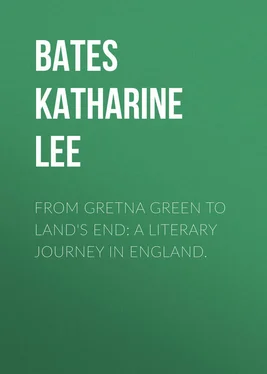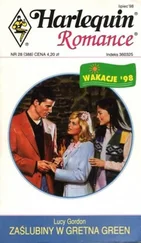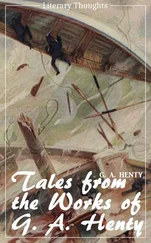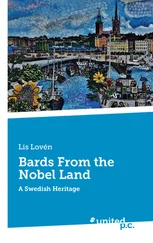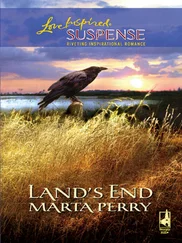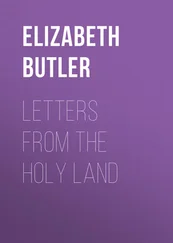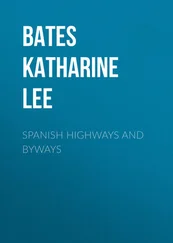Katharine Bates - From Gretna Green to Land's End - A Literary Journey in England.
Здесь есть возможность читать онлайн «Katharine Bates - From Gretna Green to Land's End - A Literary Journey in England.» — ознакомительный отрывок электронной книги совершенно бесплатно, а после прочтения отрывка купить полную версию. В некоторых случаях можно слушать аудио, скачать через торрент в формате fb2 и присутствует краткое содержание. Издательство: Иностранный паблик, Жанр: foreign_antique, foreign_prose, Путешествия и география, на английском языке. Описание произведения, (предисловие) а так же отзывы посетителей доступны на портале библиотеки ЛибКат.
- Название:From Gretna Green to Land's End: A Literary Journey in England.
- Автор:
- Издательство:Иностранный паблик
- Жанр:
- Год:неизвестен
- ISBN:нет данных
- Рейтинг книги:5 / 5. Голосов: 1
-
Избранное:Добавить в избранное
- Отзывы:
-
Ваша оценка:
- 100
- 1
- 2
- 3
- 4
- 5
From Gretna Green to Land's End: A Literary Journey in England.: краткое содержание, описание и аннотация
Предлагаем к чтению аннотацию, описание, краткое содержание или предисловие (зависит от того, что написал сам автор книги «From Gretna Green to Land's End: A Literary Journey in England.»). Если вы не нашли необходимую информацию о книге — напишите в комментариях, мы постараемся отыскать её.
From Gretna Green to Land's End: A Literary Journey in England. — читать онлайн ознакомительный отрывок
Ниже представлен текст книги, разбитый по страницам. Система сохранения места последней прочитанной страницы, позволяет с удобством читать онлайн бесплатно книгу «From Gretna Green to Land's End: A Literary Journey in England.», без необходимости каждый раз заново искать на чём Вы остановились. Поставьте закладку, и сможете в любой момент перейти на страницу, на которой закончили чтение.
Интервал:
Закладка:
Then, again, rang out those gleeful harmonies of which our Puritan bells know nothing. The circle of mountains, faintly flushed with an atoning sunset, looked benignly down on a spectacle familiar to them for hundreds of Christian summer-tides; and if they remembered it still longer ago, as a pagan rite in honour of nature gods, they discreetly kept their knowledge to themselves.
The rushes and flowers brightened the church through the Sunday services, which were well attended by both dalesfolk and visitors. On Monday twelve prizes were awarded, and the bearings were taken away by their respective owners. Then followed "the treat," an afternoon of frolic, with rain only now and then, on a meadow behind St. Mary's. The ice-cream cart, the climbing-pole, swings and games, seemed to hold the full attention of the children, to each of whom was tied a cup; but when the simple supper was brought on to higher ground close by the church, who sat like a gentle mother in the very midst of the merry-make, a jubilant, universal shout, "It's coom! It's coom!" sent all the small feet scampering toward the goodies. To crown it all, the weather obligingly gave opportunity, on the edge of the evening, for fireworks, which even the poor little Wesleyans outside the railing could enjoy.
The Ambleside rush-bearing takes place on the Saturday before the last Sunday in July. The more famous Grasmere rush-bearing comes on the Saturday next after St. Oswald's Day, August fifth. This year (1906) these two festivals fell just one week apart. The London papers were announcing that it was "brilliant weather in the Lakes," which, in a sense, it was, for the gleams of sunshine between the showers were like opening doors of Paradise; yet we arrived at Grasmere so wet that we paid our sixpences to enter Dove Cottage, a shrine to which we had already made due pilgrimage, and had a cosey half-hour with Mrs. Dixon, well known to the tourist world, before the fireplace whose quiet glow often gladdened the poets and dreamers of its great days gone by.
Our canny old hostess, in the bonnet and shawl which seem to be her official wear, was not disposed this afternoon to talk of the Wordsworths, whom she had served in her girlhood. Her mind was on the rush-bearing for which she had baked the gingerbread forty-three years. There were five hundred squares this time, since, in addition to what would be given to the children, provision must be made for the Sunday afternoon teas throughout Grasmere. The rolling out of the dough had not grown easier with the passing of nearly half a century, and she showed us the swollen muscles of her wrist. Her little granddaughters, their flower erections borne proudly in their arms, were dressed all spick and span for the procession, and stood with her, for their pictures, at the entrance to Dove Cottage.
It was still early, and we strolled over to the tranquil church beside the Rotha. Under the benediction of that grey, embattled tower, in the green churchyard with
"Ridge rising gently by the side of ridge,
A heaving surface,"
sleep Wordsworth, his sister Dorothy, and their kindred, while the names of Hartley Coleridge and Arthur Hugh Clough may be read on stones close by. We brought the poets white heather and heart's ease for our humble share in the rush-bearing.
Grasmere church, with its strange row of rounded arches down the middle of the nave and its curiously raftered roof, still wears the features portrayed in The Excursion :
"Not raised in nice proportions was the pile,
But large and massy; for duration built;
With pillars crowded, and the roof upheld
By naked rafters intricately crossed,
Like leafless underboughs, in some thick wood,
All withered by the depths of shade above.
Admonitory texts inscribed the walls,
Each in its ornamental scroll enclosed,
Each also crowned with wingèd heads – a pair
Of rudely painted Cherubim. The floor
Of nave and aisle, in unpretending guise,
Was occupied by oaken benches ranged
In seemly rows; the chancel only showed
Some vain distinctions, marks of earthly state,
By immemorial privilege allowed."
There were a number of people in the church, but the reverent hush was almost unbroken. Strangers in the green churchyard were moving softly about, reading the inscriptions on stones and brasses, or waiting in the pews, some in the attitude of devotion. In the south aisle leaned against the wall the banner of St. Oswald, a crimson-bordered standard, with the figure of the saint in white and crimson, worked on a golden ground. A short, stout personage, with grey chin-whiskers and a pompous air, presumably the sexton, came in a little after three with a great armful of fresh rushes, and commenced to strew the floor. Soon afterwards the children, with their bearings, had taken their positions, ranged in a long row on the broad churchyard wall, fronting the street, which by this time was crowded with spectators, for the Grasmere rush-bearing is the most noted among the few survivals of what was once, in the northern counties of England, a very general observance. There is an excellent account of it, by an eyewitness, as early as 1789. James Clarke, in his Survey of the Lakes , wrote:
"I happened once to be at Grasmere, at what they call a Rushbearing… About the latter end of September a number of young women and girls (generally the whole parish) go together to the tops of the hills to gather rushes. These they carry to the church, headed by one of the smartest girls in the company. She who leads the procession is styled the Queen, and carries in her hand a huge garland, and the rest usually have nosegays. The Queen then goes and places her garland upon the pulpit, where it remains till after the next Sunday. The rest then strew their rushes upon the bottom of the pews, and at the church door they are met by a fiddler, who plays before them to the public house, where the evening is spent in all kinds of rustic merriment."
Still more interesting is the record, in Hone's Year Book , by "A Pedestrian." On July 21, 1827, the walking tour of this witness brought him to Grasmere.
"The church door was open, and I discovered that the villagers were strewing the floors with fresh rushes… During the whole of this day I observed the children busily employed in preparing garlands of such wild flowers as the beautiful valley produces, for the evening procession, which commenced at nine, in the following order: The children, chiefly girls, holding their garlands, paraded through the village, preceded by the Union band. They then entered the church, when the three largest garlands were placed on the altar, and the remaining ones in various parts of the place. In the procession I observed the 'Opium Eater,' Mr. Barber, an opulent gentleman residing in the neighbourhood, Mr. and Mrs. Wordsworth, Miss Wordsworth and Miss Dora Wordsworth. Wordsworth is the chief supporter of these rustic ceremonies. The procession over, the party adjourned to the ballroom, a hayloft at my worthy friend Mr. Bell's (now the Red Lion), where the country lads and lasses tripped it merrily and heavily. They called the amusement dancing. I called it thumping; for he who made the most noise seemed to be esteemed the best dancer; and on the present occasion I think Mr. Pooley, the schoolmaster, bore away the palm. Billy Dawson, the fiddler, boasted to me of having been the officiating minstrel at this ceremony for the last six and forty years… The dance was kept up to a quarter of twelve, when a livery servant entered and delivered the following verbal message to Billy: 'Master's respects, and will thank you to lend him the fiddle-stick.' Billy took the hint, the Sabbath was at hand, and the pastor of the parish (Sir Richard le Fleming) had adopted this gentle mode of apprising the assembled revellers that they ought to cease their revelry. The servant departed with the fiddle-stick, the chandelier was removed, and when the village clock struck twelve not an individual was to be seen out of doors in the village."
Читать дальшеИнтервал:
Закладка:
Похожие книги на «From Gretna Green to Land's End: A Literary Journey in England.»
Представляем Вашему вниманию похожие книги на «From Gretna Green to Land's End: A Literary Journey in England.» списком для выбора. Мы отобрали схожую по названию и смыслу литературу в надежде предоставить читателям больше вариантов отыскать новые, интересные, ещё непрочитанные произведения.
Обсуждение, отзывы о книге «From Gretna Green to Land's End: A Literary Journey in England.» и просто собственные мнения читателей. Оставьте ваши комментарии, напишите, что Вы думаете о произведении, его смысле или главных героях. Укажите что конкретно понравилось, а что нет, и почему Вы так считаете.
